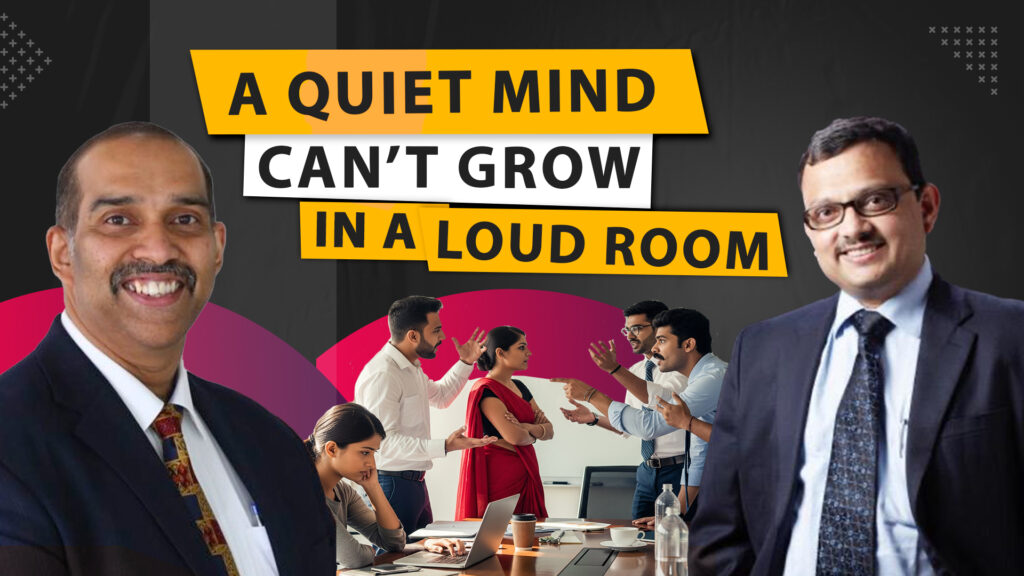
As conversations about workplace wellness grow louder, one truth remains overlooked: wellness isn’t a policy—it’s a practice shaped by everyday leadership.
In this deeply reflective episode of Wellness at Work India, two seasoned people leaders, Fiby Francis and Sanjeeb Lahiri, explore how empathy, trust, and purpose—not perks or checklists—truly drive wellness at work.
Fiby and Sanjeeb come from different worlds—Middle East-based entrepreneur and Indian CHRO—but they speak the same truth: wellness starts where connection begins.
They reflect on real workplace dynamics—from missed promotion conversations to emotional intelligence in crisis—and why burnout prevention begins with leadership that listens.
Fiby shares insights from her transition from banking to behavioral science and how purpose-driven OD can create sustainable cultures. Sanjeeb shares his journey from a shy professional to CHRO and how vulnerability, not volume, defines strong leadership.
Their message is clear: Managers can make or break mental wellness—one conversation at a time.
While organizations push values like agility and inclusion, both guests challenge leaders to ask: Are we living those values in daily interactions?
From letting people leave early without guilt, to building psychological safety for silent employees, they break down how wellness is embedded in behaviors, not brochures.
As Sanjeeb puts it:
“Excellence isn’t about targets. It’s about how people show up—especially on bad days.”
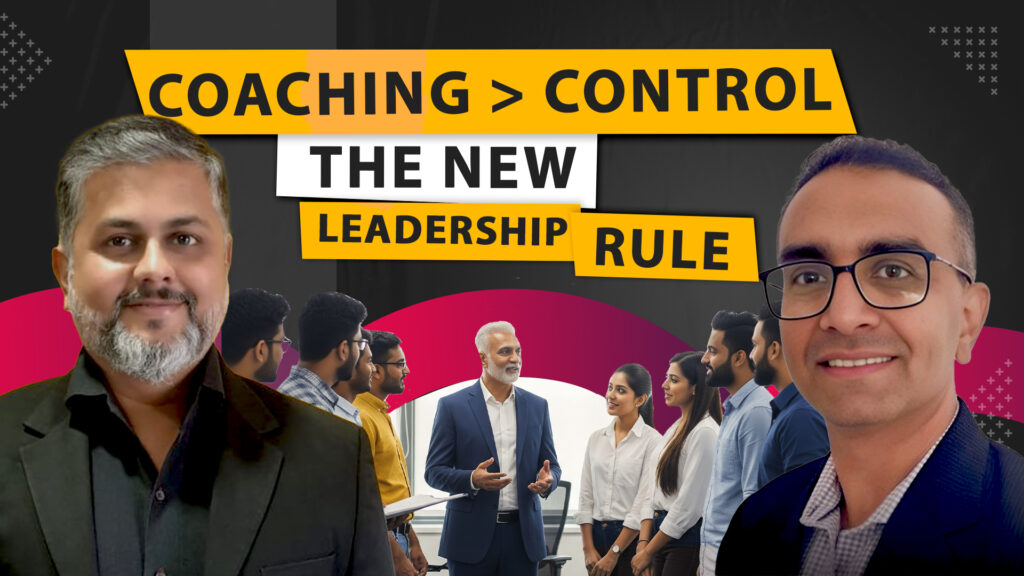
As workplaces chase growth, digital agility, and Gen Z engagement, one quiet truth is rising to the surface: wellness doesn’t begin with HR—it begins with leadership.
In this compelling episode of Wellness at Work India, two experienced HR voices from different worlds come together to deliver a grounded, inside-out view of what it really takes to build cultures of trust, belonging, and emotional well-being.
Both guests agree: mental wellness isn’t an initiative—it’s an outcome of leadership behavior. You can’t outsource empathy or coach trust through policies alone. In fact, culture isn’t crafted in HR meetings—it’s shaped in 1:1s, team huddles, and how managers react when people fail.
Hardip shares lessons from scaling people systems in startup and MNC settings—where the absence of structure, or too much of it, can break trust. Kaushal goes deep into how long-term thinking, not just hitting KRAs, creates lasting engagement and prevents burnout.
Their shared view? Leadership coaching is the missing link in most wellness strategies. Managers must be trained, not just informed—and conversations should shift from performance to purpose.
While most organizations talk about agility, inclusivity, and innovation, both Kaushal and Hardip point out the gap between what’s printed and what’s practiced. From Gen Z’s demand for meaning at work, to returnship support for women post-career breaks, they cover the nuances of inclusion that can’t be solved with checklists.
They emphasize:
“If your people can’t speak freely to their manager, no amount of wellness programs will matter.”
This episode is a must-listen for HR professionals, founders, and people managers looking to build human-first organizations that don’t burn out their best people.
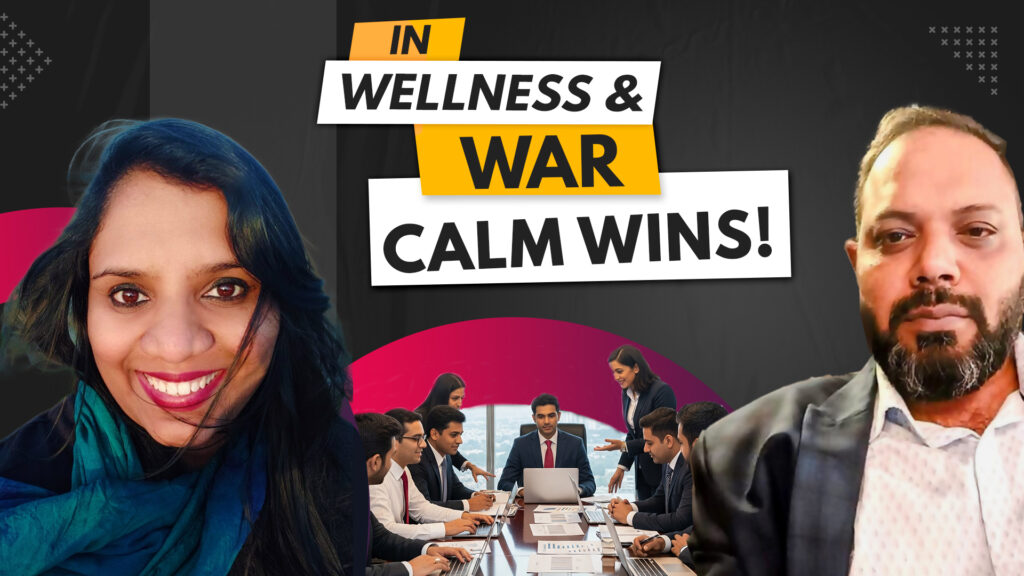
As organizations step into the future with AI-driven systems, rapid scaling, and hyper-productivity as the norm, something vital is being left behind — mental wellness. In this powerful episode of Wellness at Work India, we bring together two deeply insightful voices from very different worlds — and yet, they meet at the same crossroads of people-first leadership and emotional well-being.
Together, they decode the invisible mental health pitfalls that leaders, HR teams, and organizations often overlook — and why ignoring them is no longer an option in 2025.
The Wake-Up Call: Mental Health is Not a Perk. It’s a Priority.
In this episode, both guests emphasize that mental wellness must move beyond one-off campaigns, therapy apps, or Employee Assistance Programs (EAPs) hidden in onboarding handbooks. True wellness is a systemic culture shift — one that must be led from the top and practiced in the everyday behaviors of leadership.
Sindhuja unpacks how stress and burnout manifest in subtle, overlooked ways. It’s not always a breakdown or a crisis — sometimes it’s simply feeling emotionally numb, losing your sense of joy, or running on autopilot. It’s in the culture of weekend emails, in performance reviews that ignore emotional fatigue, and in leadership that celebrates overwork.
Lt. Col. Vivek echoes this from his own journey, drawing parallels between the mission-driven structure of the Armed Forces and the need for clarity and psychological safety in corporate environments. His view? You don’t need to abandon structure to embrace empathy. In fact, the best organizations do both.
AI, Empathy, and Human-Centered Leadership
One of the most engaging segments of the episode is Vivek’s take on AI at work. While many fear that automation will replace human roles, Vivek reframes it with refreshing clarity — AI is an assistant, not a replacement. And while AI can handle data, scheduling, and even hiring processes, it can’t replicate emotional intelligence, mentorship, or team morale.
Sindhuja builds on this with a bold point: Leaders can’t delegate empathy to tech. In the race toward digitization, organizations must be careful not to lose their human core. As she puts it, “Workplace wellness isn’t about having a meditation app. It’s about how your manager talks to you every day.”
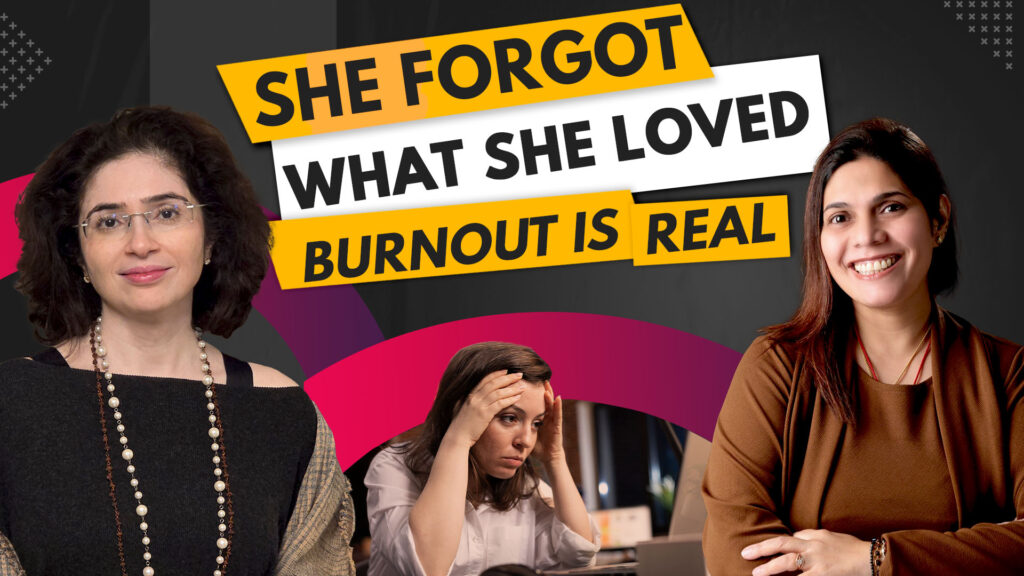
In today’s demanding work culture, especially for women navigating leadership and life roles, the concept of “having it all” often hides a painful truth — many of us are burning out silently. In this deeply personal and inspiring episode of Wellness at Work India, we bring you a conversation that cuts through the noise and speaks directly to the heart.
Our guests, Rajani Tiwari and Neha Gupta, bring decades of leadership experience in the HR and corporate space — but in this episode, they bring something even more powerful: vulnerability, honesty, and lived truth.
This is not just an episode about leadership. It’s about the emotional weight women carry, the silent trade-offs they make, and the pressing need for organizations to understand that wellness is not a perk — it’s a survival strategy.
Rajani shares a moment that stopped us in our tracks — when she sat in a restaurant and couldn’t remember what she loved to eat. After years of prioritizing her child, her work, her home, and everything else in between, she had unknowingly erased her own preferences. That one incident became symbolic of something larger: how burnout quietly chips away at identity.
This isn’t just her story — it’s the story of so many women who lead from the front, manage households, strive for perfection, and still wonder if they’re doing enough. This episode is for them.
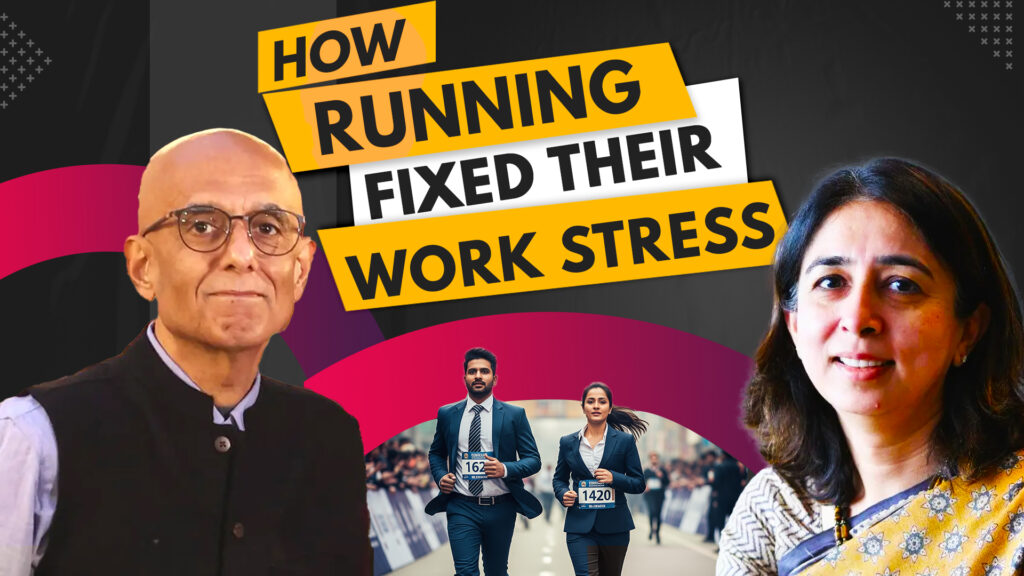
Wellness isn’t just a policy. It’s a mindset—built one mile at a time.
In this inspiring episode of Wellness at Work India,
Rashmi Mohanty (CFO, SBI Card)
and
Randeep Singh Arora (Veteran Business Leader & World Marathon Major Finisher)
share how their passion for long-distance running has shaped the way they lead, endure, and thrive in demanding corporate environments.
This conversation isn’t about fitness routines or morning jogs—it’s about how consistent personal wellness can drive leadership clarity, mental strength, and team resilience.
From Rashmi’s 100K runs while leading finance teams through audits, to Randeep’s remarkable comeback after a heart scare—this episode explores the real connection between wellness and performance.
If you’ve ever wondered how to lead through pressure without burning out—or how your personal health impacts your professional edge—this one’s for you.
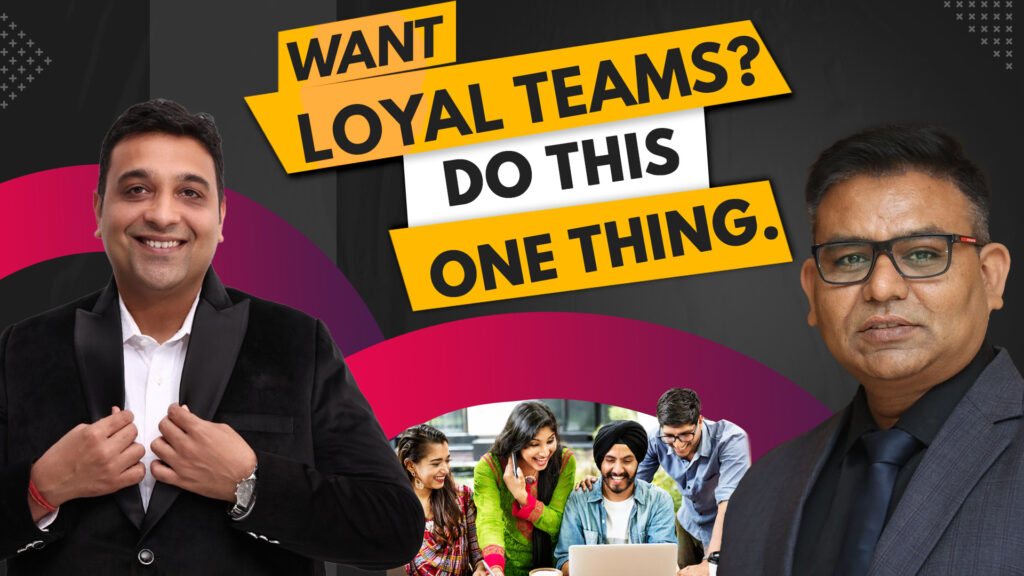
Well-being at work isn’t about bean bags or breakroom posters. It’s about how leadership shows up—especially when no one’s watching.
In this honest and deeply reflective conversation, Ankit Lodha, CFO of a leading ethnic fashion D2C brand, and Dr. Rajesh Rolen, CEO & Co-founder of Microlent Systems, explore what real employee wellness looks like when it’s driven by empathy, accountability, and clarity—not campaigns.
Coming from two high-stakes worlds—finance and tech—they open up about the invisible weight employees carry, and why most burnout goes unnoticed until it’s too late.
From spotting early signs of disengagement, to implementing 1:1 conversations that go beyond performance reviews, they reveal leadership tools that create emotional safety and team loyalty.
Ankit shares how financial stress, job insecurity, and role ambiguity affect performance—and how he builds psychological guardrails for his team in high-pressure environments.
Dr. Rajesh brings a tech founder’s perspective, explaining how simple actions like rest breaks, personal check-ins, and prioritizing behavior traits in hiring have helped reduce silent burnout across his company.
This episode unpacks personal stories—like how Dr. Rajesh invited a resigned employee back after a personal loss, and how Ankit diffused burnout in a colleague with one empathetic response.
It’s not about theory.
It’s about practicing leadership with compassion—consistently.
Whether you lead a team of five or five hundred, this conversation will challenge how you think about mental health at work—and inspire you to take action where it matters most.